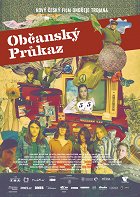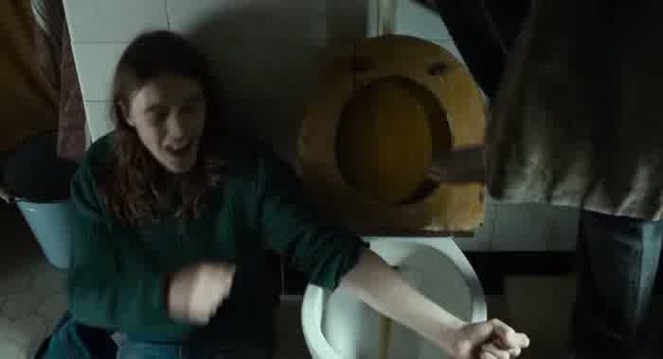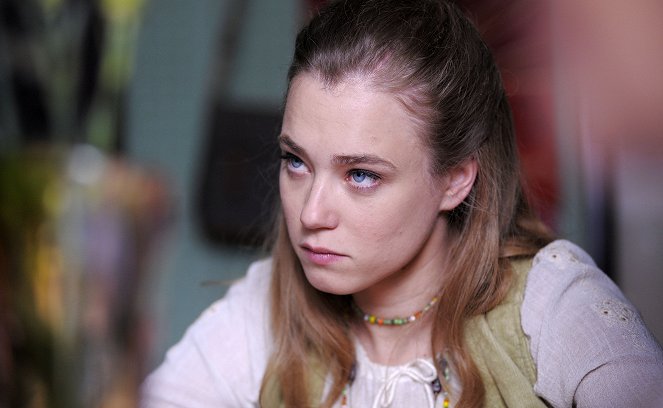Directed by:
Ondřej TrojanScreenplay:
Petr JarchovskýCinematography:
Martin ŠtrbaComposer:
Petr OstrouchovCast:
Libor Kovář, Matouš Vrba, Jakub Šárka, Jan Vlček, Aňa Geislerová, Martin Myšička, Jan Vaši, Jenovéfa Boková, Marek Taclík, Adam Kubišta, Лилиан Малкина (more)Plots(1)
Identity Card is taking place in Prague, between years 1973 – 1977. Therefore in the times of greatest normalization, in the times close after occupation of Czechoslovakia Socialist Republic by the army of Warsaw Pact. In the times when Big Beat and long hair ment resistence against socialism of Husak. Because of your identity card you were easy target for police hassling, while release from basic military service was a lottery win.
Moviemakers said about their movie: „In this movie you’ll see four classmates – Petra, which is also a narrator, and his three friends Popelku, Alese a Mitu. You will see period from when they are fifteen years old and get identity card up to they are eighteen years old and they are trying to release from basic military service. (official distributor synopsis)
(more)Videos (2)
Reviews (9)
Let's sing the song all the way through after twenty years. And indeed "finally" times have changed so much that the formerly condemned mops now have their own black and white film. What was bad before is good today. Fine, but where is the added value? Do we portray the journey to the Plastic People of the Universe as heaven on earth and getting off the train as hell in a socialist cage? Let me know when they start filming sometime in the next x years about what it was like to live in the middle of these extremes. It is not pleasant to admit that you did not have to be for or against it, but this was also reality. However, if I consider the Identity Card from a different perspective, I can appreciate, for example, the set of sub-gags that are so great that they alone surpass many films that fall right into that cauldron of the last unbalanced twenty years. Indeed, it would be a mistake for me to expect a compact film made from Šabach's miniatures. The sets are in direct contrast to the unrealistically-conceived Czech series Wonderful Times, which is an emblematic example of another extreme in the treatment of (not only) the Czech normalization past. The adult actors must be praised as a whole - none of them disappointed - from the stalwarts of the creative team Geislerová and Macháček, through the relatively untested Myšička, the new Dulava, to the classic Šulcová or Vlach. The overall realism, which is the biggest positive of the film, was most supported by the well-chosen youngsters, who left several generations of other youngsters behind with their straightforward performances. Unfortunately, hand in hand with this, along with the alarming positives, to which I'll add the scene of the young teacher's firing in particular, I also have to deduct points for its unnecessary double-ending. The otherwise totally amateurish Czech film Lovers & Murderers also felt better in this context. And, of course, many other promising topics were not coaxed out at all. Particularly the attempted emigration, the truth about the founding brothers, and the new generation of the family of cops. All in all, I'm bitter about the result, which. Whilst answering my long-standing reservations about the problems of Czech cinema in a positive way, it also deepened other mistakes.
()
The "something" that was missing between Pupendo's harmless nostalgia and the hard disillusioned Androš... and it's going to get worse, it's coming in Identity Card. A film about responsibility, rebellion, quiet dignity and the price of freedom can make you laugh through Šabach escapades, but at the same time cut into the living with nicely profiled and believable characters. Identity Card has one flaw – the narrative framework lacks a solid story pattern, and all the weight is borne by the central boy quartet. The boys are skillful and direct, but they have no chance to carry the weight of slow storytelling without Trojan's film losing its pace. A more consistent edit would certainly not hurt the overall concept. Luckily, there's always a Dylan Point heard just in time, and Trojan edits some first-rate scene into it, so I left the movie theatre with the uplifting feeling that everything’s not fucked as long as we could laugh (and recognize that we were laughing at ourselves) without awkwardness. Identity Card is able to do it, and let it be praised all the way to a pure and undiluted four stars. Along with Walking Too Fast, Czech film of the year.
()
A film with a pleasant, fresh and (with a few exceptions) not that well known of a cast, but which will be appreciated mainly by those nostalgic for the depicted era. For me, a person who didn't nod and say "Yeah, yeah, that's it" all the time while watching, because he simply didn't experience it, I was left with a strangely incoherent story made up of various episodes, a parade of typical Šabach characters (so nothing original either), an incredibly long runtime (it seemed a dull three hours to me) and otherwise nothing much. In short, another variation on a theme that has been seen several times before.
()
Revolting, grinning, and sobbing. Considering how fed up I am with the places Czech filmmakers constantly turn, Identity Card is an incredibly uplifting experience. Additionally, the fact that Petr Jarchovský is the one writing for Ondřej Trojan this time is literally its salvation, because I wouldn't believe Jan Hřebejk's returns to the past even with a C cup.
()
I am a generation (born in 1986) that has never experienced anything as ceremonial as the official issuing of identification cards. I have to say that I am quite glad because I have already had three graduations, one as the winner of the best bachelor's thesis competition, and I must say that it was also an event that did not impress me in any way. Everything was very official, staged. Still, it was better than the theater that young people had to witness during the socialist era. The depiction of the issuing of identification cards in this film is not necessarily epic, but it is definitely portrayed excellently. On one side, there are loyal communists, and on the other side, there are rebels who want to resist, even just a little. It was a sad time, and I am glad that I was born at a time when the communists' bell was tolling and a bright capitalist future awaited us. Yes, there is a bit of irony in that, but the review should not dwell on it. More: http://www.filmovy-denik.cz/2013/02/obcansky-prukaz-2010-75.html
()



Ads